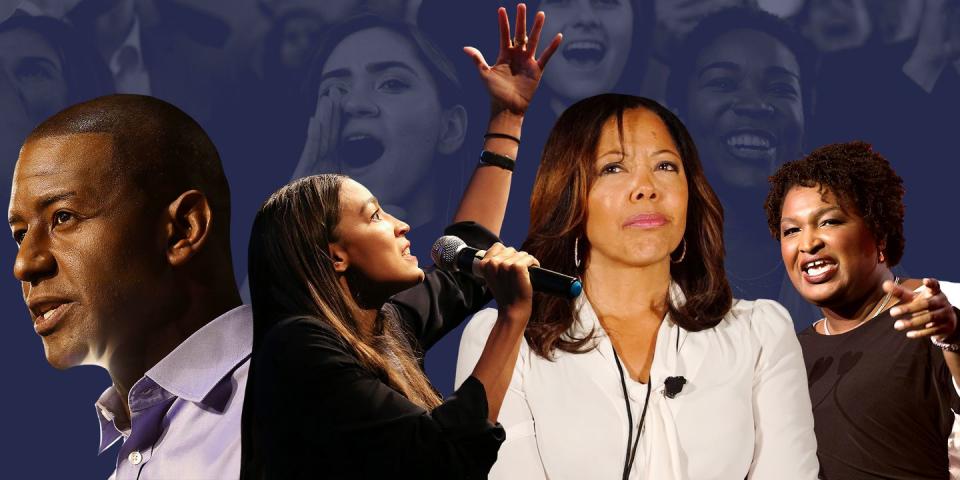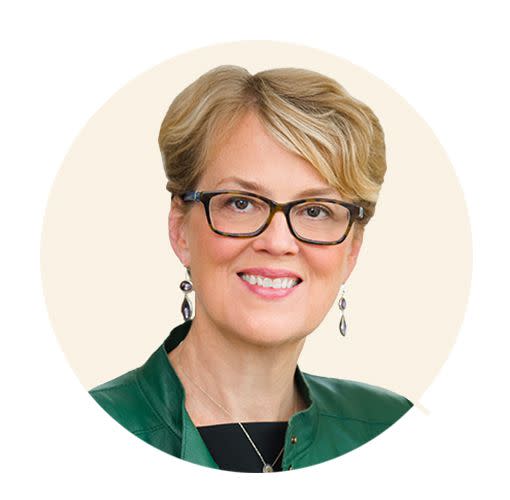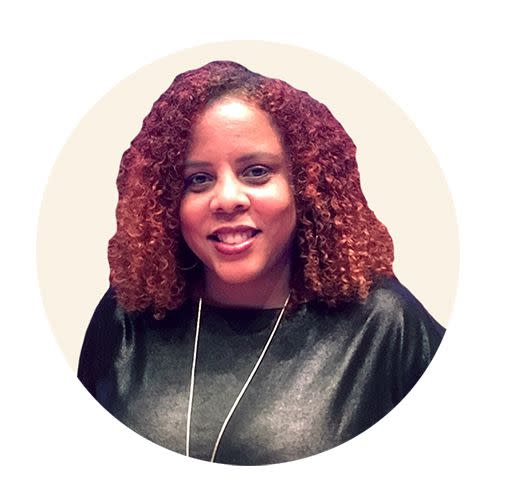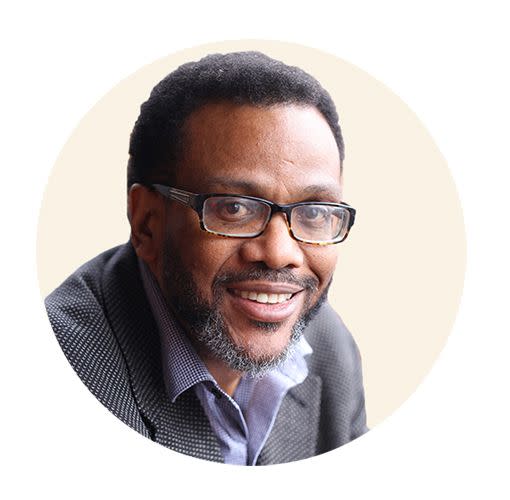Making Sense of the Midterms: A Roundtable With Melissa Harris-Perry

It has been a week since voters cast ballots and made history across the country, and we still do not know the outcome of several key races. The messiness and madness of the Florida recount recalls Gore v. Bush. Georgia is Exhibit A for the politically obvious point that a gubernatorial candidate should not also hold the secretary of state position, which puts him in charge of his own election outcomes. And the Senate runoff in Mississippi became much more controversial and contested when Republican Senator Cindy Hyde-Smith offered ill-advised enthusiasm about attending a theoretical lynching as the guest of her black opponent, Democrat Mike Espy. All this in a week punctuated with the resignation of Attorney General Jeff Sessions, the hospitalization of Justice Ginsburg, a mass shooting in Thousand Oaks, California, and fatal wildfires ravaging California.
So much has redirected our attention and headlines that last Tuesday can seem like a distant memory. It is a mistake to turn too swiftly from the midterm results because, as President Obama observed in 2009, “elections have consequences.” This year, voters delivered impactful results that will have consequences well into the future. Democrats regained control of the House of Representatives. Millions of voters who typically remain home during midterm elections turned out to cast ballots. Women of color won in states and districts where they have never before served as representatives. And a record number of women of color will serve in the next Congress. Progressive ballot measures were victorious in electorally strategic states. Was it the Blue Wave progressives were hoping for? Republicans strengthened control in the Senate and meaningful restrictions on voting and abortion were approved by Southern voters.
As the news cycle hurtled forward, I gathered a roundtable of organizers, faith leaders, media professionals, and experts to take stock of this moment and help us make sense of the many different ways the midterm elections impact our continuing and intersecting struggles.

Many Americans woke on the morning of Wednesday, November 8, 2016, wondering if they had only imagined the presidential outcome reported the night before. Donald Trump’s election touched off waves of shock, dismay, and fear about what his administration would mean for vulnerable communities. This anxiety proved mobilizing rather than paralyzing. New candidates and renewed community organizing have worked to replace the 2016 Shockwave with a 2018 Blue Wave. Tuesday night was a mixed bag of big successes, just-short losses, and run-off-prompting dead heats.
So how did you feel when you woke up this Wednesday? How was it different than two years ago?
"I woke up this morning heartened but sober.

We saw historic wins in a Rainbow Wave-a record number of young people, people of color, and women joining the political process. At the same time, the election results do not change the fact that violence, vitriol, and white nationalism continue to threaten the most vulnerable among us, including communities like mine.
Between now and 2020, I believe that we must anchor ourselves deeply in moral vision-focus on what we are fighting for, not just what we are fighting against. I believe we need to shift the frame from resistance to birthing a new America, a multiracial, multifaith, multicultural nation that protects the civil rights of all of us. We are seeing glimpses of a new America in the wave of women, people of color, and queer people we elected last night. Let that embolden us for the labor ahead." -Valarie Kaur is a Sikh American activist, movement lawyer, author, filmmaker, and Founder of the Revolutionary Love Project.
"I wasn’t surprised by the outcome. I feel like things haven’t changed. The nation continues to be polarized. What I felt wasn’t so much about the outcome, but more about what it took to get to the outcome. By that, I mean a deep feeling in my gut that so much was stolen. I’m thinking specifically about the Georgia and Florida gubernatorial races." -Rev. Carl W. Kenney is co-producer of God of the Oppressed, a documentary film on black liberation and womanist theologies.

"I was somewhat frustrated by people who acted as though retaking the House of Representatives was not a big deal. The House was our top-of-the-ticket this time and winning it was absolutely crucial. We may not have won every fight but you have to take your victories when they come, acknowledge and celebrate them in order to regroup and continue the work." -Chloe Angyal, Deputy Opinion Editor at HuffPost.
"I am a ball of mixed emotions. Herstory was made across the nation, but I know that means we have to push even harder now for accountability and follow-through from all of the candidates who voters of color, black women in particular, helped elect to office. And I am still pulling for Abrams... there’s still hope." -Treva Lindsey, professor of Women’s Studies at Ohio State University.
"Determined. This turnout affirmed the truth that racial justice works. It brings people out, it brings people together, it’s a gateway for moving people toward a more progressive worldview. It is remains, unquestionably, one of the most critical paths for transforming America. This year, organizers did more than activate our communities-they gave birth to a legacy. We know that racism divides people, but we have also seen racial justice unite and motivate people. It does so in places people think are Black and Brown, and it does it in places people still think are white, like the Rust Belt." -Rashad Robinson, Executive Director, Color of Change.

"When I went to bed Tuesday night, I felt relieved that Democrats had regained the House. The image in my mind was the 91-year-old African American mother of my friend who sang on the way to the polls: 'Ain’t gonna let nobody turn me around…' and at the other end of the age spectrum, the Parkland young people who voted for the first time. By the time I woke up on Wednesday morning, I was on fire with anger at how systematic racism and white supremacy, intertwined with certain forms of Christianity, infected the 2018 elections. It is clear that racist rhetoric and intentional acts of voter suppression, that have their roots in Jim Crow laws, were aimed at both Stacey Abrams and Mayor Gillum. As a white woman I was horrified by the levels at which white women voted to uphold patriarchy and whiteness." -Katherine Henderson, President of Auburn Seminary.
"I felt extremely relieved and energized that we were able to create a check on Trump's tyrannous administration. We may not have had a wave, but we absolutely regained some balance to our government that we desperately need." -Danielle Moodie-Mills, host of the political talk show #WokeAF on SiriusXM.
"I felt hopeful about the ability of the people to get it together. At the same time I felt anxious that the Democrats will throw the opportunity away in the pursuit of bipartisanship." -Chanda Prescod-Weinstein is a theoretical physicist and Black women’s studies researcher at the University of Washington and the University of New Hampshire.

Clearly we are operating in a dramatically different emotional register than in 2016. But it seems to me this is fueled only in part by Democrats success in regaining the House of Representatives. Yes, partisan power shift was important, but it feels like the enthusiasm, the sense of groundswel,l and substantive change is more about the foundation of these victories. It seems to me #BlackandBrownGirlPower is giving many of us life in recent days. I call it #BlackandBrownGirlPower rather than #BlackGirlMagic because sisters had to earn these historic wins by wrestling power, not only from Republican opponents, but also from the Democratic Party establishment.
So, can we talk about how the victories of Alexandria Ocasio-Cortez, Rashida Tlaib, Ilhan Omar, Ayanna Pressley, Sharice Davids, Deb Haaland, Veronica Escobar, Sylvia Garcia, Anita Earls, Lauren Underwood, Jahana Hayes, and Letitia James were the big stories of 2018?

"I woke up in tears. Mostly they were blissful tears because for once it felt like victory day. Native Women made history Tuesday night because our communities showed up and showed out! My tears were accompanied by a resurgence of energy and a feeling of hope. For once, we have REAL representation and women in office who will stand up for the welfare of Native peoples and our tribal nations. The political system was not designed for us, but Tuesday night Sharice Davids, Deb Haaland, and Peggy Flanagan (who is now the highest ranking indigenous elected official in the history of the U.S. as Lt. Governor of Minnesota) made history and showed us what is truly possible when you fight with integrity and in the name of progress and compassion." -Bethany Yellowtail, fashion designer, activist, and founder of byellowtail.com.
"As a New Yorker, I certainly had my eye on Alexandria Ocasio-Cortez’s inspiring campaign and I’ve known Tish James for over 10 years-it’s been incredible to watch her become the first Black woman elected to citywide office,and now the first Black attorney general in the state’s history." -Joanne Smith, Founder/President of Girls for Gender Equity.

"I tried to follow most races with women of color who are progressive or progressive-leaning. How could you not be excited about a candidate like Sharice Davids? I contributed to quite a few campaigns, but I was most enthralled by Abrams. The energy surrounding this largely grassroots campaign captivated me. Abrams made herstory-victory or not. Her opponent, the Secretary of State, relied on every dirty tactic of voter suppression and disenfranchisement to stop the momentum of the Abrams campaign. To see a single, plus-sized, brown-skinned, natural haired Black woman push Georgia to the left and energize so many voters gave me life." -Treva Lindsey, professor of Women’s Studies at Ohio State University.
"So many candidates Color of Change endorsed, supported, and worked for had a big night! We were active in Florida, Georgia, Michigan, Nevada, and North Carolina, and we worked hard for both Andrew Gillum and Stacey Abrams in particular. We were also part of the victories for Faris Dixon, District Attorney of Pitt County, Ilhan Omar the newly elected U.S. Rep. 5th District of Minnesota, Rashida Tlaib the newly elected U.S. Rep. 13th District of Michigan, and Steve Sisolak, Governor of Nevada. And of course, Lucy McBath, in the 6th District of Georgia. Lucy McBath is one of the most incredible stories of 2018. She got into politics fighting stand your ground laws that killed her son; she just took out a pro-gun Republican in a district once considered impossible. Lucy is a friend and a hero." -Rashad Robinson, Executive Director, Color of Change.
"Just think of what we have done! We elected the first Muslim women to Congress, the first Indigenous women to Congress, the first Texas Latinas to Congress, the first openly gay man as Governor, the first Black women to Congress from Connecticut and Massachusetts, and the youngest-ever woman to Congress. For the first time, more than 100 women now serve in the House. And in Florida, voters passed Amendment 4, restoring voting rights to 1.4 million people with a past felony conviction, the largest expansion in voting rights since the Voting Rights Act." -Valarie Kaur, Sikh American activist and Founder of the Revolutionary Love Project.

I wonder whether those who hold political power are learning the necessary lessons on this election. In 2016, Democrats made little effort to speak directly to the base of black women voters whose breathtaking turnout and overwhelming support of Democratic candidates was responsible for much of the Party’s success. For more than 30 years, when Democratic candidates have enjoyed an advantage among female voters, it has been the result of overwhelming support from women of color, especially black women voters. In the these midterms, women of color, led by black women, refused to be ignored.
So, what are the lessons of the base we need to be sure to learn?

"I think Ocasio-Cortez’s win signals a genuine frustration from voters across all walks of life, but especially voters of color, with the Democratic establishment. I hope the Democrats are paying attention to this as they head into a House leadership race. I think we’re done with Pelosi and Schumer." -Chanda Prescod-Weinstein is a theoretical physicist and Black women’s studies researcher at the University of Washington and the University of New Hampshire.
"I see the nation moving toward a more progressive agenda. Be it judges pressing for judicial reform, legalizing medical marijuana, minimum wage initiatives and more; some voted for Republicans while supporting these progressive initiatives. I think this gives Democrats reason to move past the fear of moving too far left in isolating moderate voters. I’m still brewing over how Claire McCaskill sold her soul to garner support from Trump supporters. She should have trusted the power of black women to get out the vote. That’s a hard sell in Missouri, but all of that compromise pissed folks in my home state off." -Rev. Carl W. Kenney, co-producer of God of the Oppressed.

"The lesson of this election is authenticity and the willingness to embrace deeply progressive values. These women won because they stood in their truth and were unabashed about their leftist and progressive stances. We need more of this and not the rush to the center of many Democrats. The reality is this Republican Party is run by white supremacists and fascists, and we shouldn't be working with them on anything unless they begin to denounce Trump and his racism." -Danielle Moodie-Mills, host of the political talk show #WokeAF on SiriusXM.
"The lesson remains the same: Trust and support black women. Invest in women of color candidates who do not water down their messages. The ground game, the organizing efforts led by women of color and political operatives and strategists of colors anchored the 'colored girls' wave of 2018. White supremacy is a dynamic and unrelenting force, but women of color who reach into and work with communities are game-changers. Look at the receipts, and invest accordingly." -Treva Lindsey, professor of Women’s Studies at Ohio State University.
"It is long past time for the Democratic Party to support women of color as candidates-particularly Black women, who have not only been one of the party’s most consistent voting bloc’s for decades but have done so via grassroots organizing and worked to elect Democrats without the resources of large PACs and political organizations. The women who were elected last week won because they speak to the needs of the many, not the few. Living at the intersection of racism and sexism prevents most us from having any delusions about accessing the benefits of white supremacist patriarchy. I think the level of empathy that grants women like those who ran in this election is what the party, and the country as a whole, need desperately right now." -Joanne Smith, Founder/President of Girls for Gender Equity.
"American majority or whether they will continue to focus on traditional white swing voters in a more centrist space? Can leaders of the Democratic Party learn from the innovative campaigns run by Beto O’Rourke, Stacey Abrams, and Andrew Gillum that forever changed the way of doing politics in those 'red' states and nurture the relationship-based infrastructure that these three powerful candidates and their teams built? That did not happen after the Obama victory, but it must happen now." -Rev. Dr. Katharine Henderson is President of Auburn Seminary.

"The conventional wisdom about 'low propensity' voters has been exposed for the racist ruse it is. When low propensity voters get the attention than other voters do, and receive the care and understanding and human touch that other voters do, they vote just as much as other voters do. Racial justice can change the rules for how elections work: 1.4 million people in Florida taking their freedom to vote back from the hands of those who stole it. This will have a deep impact on elections to come." -Rashad Robinson, Executive Director, Color of Change.
"Organizing always matters, especially when marginalized communities and candidates cannot always rely on the assistance of the Democratic Party. There is absolutely no way Stacey Abrams would be in the position she is in without years of systemic organization throughout 159 counties in Georgia. Or Ayanna Pressley organizing within her own party when almost all of the establishment, including the Congressional Black Caucus, decided to support her opponent. Cortez has a similar story in NYC! Organizing shifts the balance of power." -Christina Greer is an Associate Professor of Political Science at Fordham University in New York City.
For all the celebrating this week, two potentially game-changing campaigns did not get to drop confetti and declare victory, yet. It's still unclear who will win in Florida or Georgia's gubernatorial race.
Given what you all have said about organizing, what should we make of these results?

"Stacey Abrams faced an opponent who did everything in his power to deny Georgians their right to vote for her or anyone at all. Andrew Gillum was targeted by an ugly smear campaign and still commanded nearly half of the votes counted in Florida. Both of these candidates represent the best of what their party has to offer in terms of ushering in a truly progressive future and have proven that they deserve a place on the national stage in some capacity. The only failures at hand are on the part of the institutions that could have invested more resources into these two brilliant, exciting young candidates but chose not to do so. Without the organizing efforts of groups like the Black Voters Matter, Black Church PAC, the Dream Defenders, the Collective PAC, the Movement for Black Lives and so many others, we wouldn’t have seen the same number of women, people of color and queer winners last week, nor would we have seen voting rights restored to formerly incarcerated people in Florida." -Joanne Smith, Founder/President of Girls for Gender Equity.
"Given the tremendous amount of voter suppression in Florida and Georgia, which clearly disproportionately affects people who are likely Democrats, if we are to speak of failure it should be to say that democracy failed. But Abrams and Gillum changed the conversation about what kind of candidate merits a high turn out. Both of them did better in their respective states than Clinton did in 2016, and that tells us something about the wisdom that white moderates are an essential key to success. That’s clearly not true." -Chanda Prescod-Weinstein is a theoretical physicist and Black women’s studies researcher.
"Both Gillum and Abrams registered, organized, and mobilized communities in ways that will have lasting effects. But it is crucial to watch for voter suppression. When commentators talked about the black voter drop off between 2012 and 2016, they behaved as if the voters simply failed to show up at the polls. No! They were deliberately kept from the polls by a series of new voter suppression laws." -Chloe Angyal, Deputy Opinion Editor at HuffPost.

"Abrams is facing an opponent in Brian Kemp who LITERALLY controls the ballots! Her race has been an inspiration, and it's not over. She was able to get Georgians to conceptualize a leader that was not white, was not male, and was not a Republican, no small feat. Kemp has been stealing the election and suppressing voters in slow motion for months. Abrams should feel proud of the millions who came out for her and will continue to do so in the face of the institutional barriers in place." -Christina Greer, Associate Professor of Political Science at Fordham University in New York City.
"The election in Georgia is being stolen in broad daylight. Abrams’ opponent, Brian Kemp, has been in charge of elections as Secretary of State during this election, and he refused to step down. His office has purged over 1.5 million voters from the rolls since 2016, and 214 polling places have closed, targeting minority and low-income neighborhoods. Earlier this year, he put 53,000 voter registrations on hold, 70 percent of them from Black voters. On election day, there were lines at the polls in Black neighborhoods that were hours long. Kemp was even caught on tape admitting that he was 'concerned' about people going out to vote. Abrams has written a new story of what’s possible when focus on building for the future." -Rashad Robinson, Executive Director, Color of Change.
All of you are pointing to voter suppression to help us understand what happened in Georgia and Florida. I can’t help but think of Ari Berman, who pointed out in 2016 that "there were 25 debates during the presidential primaries and general election and not a single question about the attack on voting rights, even though this was the first presidential election in 50 years without the full protections of the Voting Rights Act.” This seems like an extraordinary abdication of responsibility on the part of American political media who were tasked with covering the presidential campaign. This year proved that even if media were not talking about it, those who understand how the game of politics is played are well aware that the rules of the game are at least as important as the teams on the field. Florida and North Carolina both had voting rights on the ballot this year, and the outcomes were very different. Florida restored voting rights to about a million and half Americans by ending disenfranchisement of those convicted of a felony. Meanwhile North Carolina instituted voter ID into the state’s constitution.
"The South still got something to say. Over the past few years, we’ve seen crucial victories in the South, largely due to the organizing efforts of people of color, especially black women. These organizers rallied around both unprecedented registration and voter support efforts, amendments and bills that would significantly impact communities of color, and candidates who offered more progressive-leaning visions. Organizers contributed to an impressive voter turnout as well. One of the best examples of this was the passing of Amendment 4 in Florida, which restored voting rights to 1.5 million people in Florida. The possibilities are exciting, and the passage of that amendment became a reality because of groups like the Dream Defenders and other activist-oriented, justice-centered groups and individuals. Moving Florida to the left is one of the biggest outcomes of organizing this election cycle." -Treva Lindsey, professor of Women’s Studies at Ohio State University.
"Victory for Amendment 4 is a life-changer for 1.5 million formerly incarcerated people in Florida, and it’s a game-changer for state and national politics. This reverses a decades-long injustice and ends another way in which the criminal justice system has been weaponized to silence Black, Brown and poor people. Obviously it has huge implications politically by putting a huge new group of potential voters into play. Given Florida’s history in deciding presidential elections by razor thin margins, this could be a major factor in 2020." -Rashad Robinson, Executive Director, Color of Change.
"The Florida win is one of the most pro-democracy things to happen at the ballot box in my lifetime. Voting rights are a fundamental part of a functioning democracy, and right now the number of people who can’t vote because of felony convictions means we are a very dysfunctional democracy at best. Florida took a critical step toward fixing this, and I think it will be a game changer for progressives in 2020 and beyond. At the same time, North Carolina rolled back the clock to a time when the country was less democratic. Political time travel of this kind is embarrassing, and it’s a clear effort to suppress Black voices, but also white working class voices." -Chanda Prescod-Weinstein is a theoretical physicist and Black women’s studies researcher.

"And don’t forget the Missouri and Michigan medical marijuana initiatives are critical in moving forward with national legalization of marijuana. This, combined with local candidates who support judicial reform, are important in reducing the incarceration of black men and women." -Rev. Carl W. Kenney is co-producer of God of the Oppressed.
"The North Carolina decision is bad. We are not operating under the full protection of the VRA, and this is just another measure to erode participation by people of color. Voter ID laws are deliberate and explicit measures to decrease Black political participation in NC. We see this, and we will have to continue to organize to combat these attempts to dilute our ballots. These are old school tactics, we have seen them before, and we can be prepared. As my grandma would say, 'The only time you should be surprised is when you are surprised.'" -Christina Greer, Associate Professor of Political Science at Fordham University in New York City.
"The win in Florida for restoration of voting rights is huge and holds important lessons for future efforts. These organizers did not choose to test this out in a smaller, easier to win, but less consequential state. There was nothing incremental about this. They did not try to get a partial win or to use executive power to make it happen. This was an insanely courageous effort! They identified where the problem was most acute, and they went for the big win. That is incredibly bold and ambitious. It is amazing. I hope that bold ambition characterizes more initiative activism going forward." -Chloe Angyal, Deputy Opinion Editor at HuffPost.
After the past two years, I suppose it is not surprising that women were on the losing end of one of the most disturbing decisions of the midterms. Alabama voters approved Amendment 2, the State Abortion Policy Amendment. It states “nothing in this Constitution secures or protects a right to abortion or requires the funding of an abortion.” Additionally, it requires the state to “recognize and support the sanctity of unborn life and the rights of unborn children, including the right to life” and “ensure the protection of the rights of the unborn child.” This decision paves the way for criminalizing women for everything from using contraception to having a miscarriage and will have even have devastating effects on assisted reproductive technologies like IVF.
Am I being alarmist?
"This is heartbreaking. Cis women, trans men, and non-binary folk are going to be forced to choose between compulsory pregnancy or risking their lives seeking underground terminations. This kind of legislation is anti-life." -Chanda Prescod-Weinstein, theoretical physicist and Black women’s studies researcher.
"This was perhaps one of the most devastating outcomes of this election cycle. The misogyny, the downright misogyny is appalling. Reproductive justice organizers and activists face one of the most challenging uphill battles in the fight for access to safe abortions. I fear for the health of child-bearing people and the message this sends people in Alabama and in other states looking for ways to strip the right to abortion. This bill tells us the fetuses and zygotes have more rights than a child-bearing person. It’s profoundly inhumane and unjust." -Treva Lindsey, professor of Women’s Studies, Ohio State University.
"This is absolutely terrifying. It is some Handmaid's Tale shit. A constitution is a statement of purpose. This is now Alabama’s stated purpose-to give a fertilized egg more rights than an adult women. It reveals so much of what the reproductive justice community has been trying to say for years. This is not just about abortion. This is about legislating the right and proper role of men and women and the imperative of procreation in the society they want to live in." -Chloe Angyal, Deputy Opinion Editor at HuffPost.
More than 50 years after he first posed the question in 1967, we are faced again with the query Dr. Martin Luther King articulated toward the end of his life, “Where do we go from here?"
Will we descend into chaos or build a new vision of community?
"As a Christian minister, I am deeply concerned about the current alliance of many evangelical Christians with white nationalism in its various forms-blatant racism, anti-Semitism, Islamophobia. People of faith and moral courage must work together to resist the subversions of our faith traditions for violent purposes and put forth a compelling vision, invitation, and pathway to a future of justice with love for all that we can build together. If it was not evident before, it is now quantifiably true that the election of Trump was not an aberration. Fundamentally, this election was a referendum on who gets to be human. As a Christian, I believe that God has already made that decision for us: The answer is everyone. Our work then is to organize our life together through law, policy, and practice that supports the flourishing of all God’s creatures and the planet herself. The work ahead for people of faith and moral courage is to listen intently to one another, to bridge differences wherever possible and to pursue justice with love. Let’s keep writing the future story of America together, one in which all voices are heard and represented at every level of our democracy." -Rev. Dr. Katharine Henderson is President of Auburn Seminary.
"American politics remain flawed. They are deeply entrenched in white supremacy, patriarchy, and capitalism. Women of color, LGBTQ people of all races, and poor people of all races were not thought of as players in our political system. Despite tremendous gains, such as over 100 women being elected to serve in Congress or numerous 'firsts' for women of color, American politics continues to reflect the bigotry, biases, and conservative tenor of those with the most political power. These wins tell us we can gradually shift what’s possible and that we can’t stop imagining new futures." -Treva Lindsey, professor of Women’s Studies at Ohio State University.
"My vision is to birth a new America-a multifaith, multiracial, and multicultural nation that protects the civil rights of all, where people of all races, religions, abilities, genders, and orientations not only survive but thrive, where women are not only believed but lead, where our children go to school without fear of bigotry or violence, where the police serve all of us, where mass incarceration is ashamed of the past, where a free press and judicial system are respected, where lawmakers work together to enact smart policies that calm the rising seas, protect the open internet, keep big money out of politics, welcome immigrants, and ensure that every person has access to healthcare, education, clean water and food, and so much more." -Valarie Kaur, Sikh American activist and Founder of the Revolutionary Love Project.
"So the question is not whether Trump’s racist framing of all that’s wrong in the world is the more compelling one. It’s about his platform being the larger one. That’s the question of infrastructure. It should make us all think smarter about the platforms we need to build in our media and culture in order to compete. Not empty talking points and messages that fly no farther than cable news, but narratives and content that we carry deep into communities, carried through smarter media and also through better organized people. It should also make us think about infrastructure on the ground, what's been achieved this year in building the infrastructure. Start by asking the Democrats who just flipped seats in Congress from South Carolina, Georgia, Virginia, and Florida. You can ask Doug Jones, who is serving in the United States Senate right now as a Democrat from Alabama. These states have been red in part because of the systemic, generations-long silencing of Black voters. This year we worked with thousands of people to build independent Black political power in these states. It was joyful, it was positive, and it envisioned new possibilities of a government that was accountable and responsible to our community on the issues that matter. I know other progressive communities did the same. I think we have opened up a new range of possibilities in these regions for what can be accomplished politically." -Rashad Robinson, Executive Director, Color of Change.
('You Might Also Like',)
